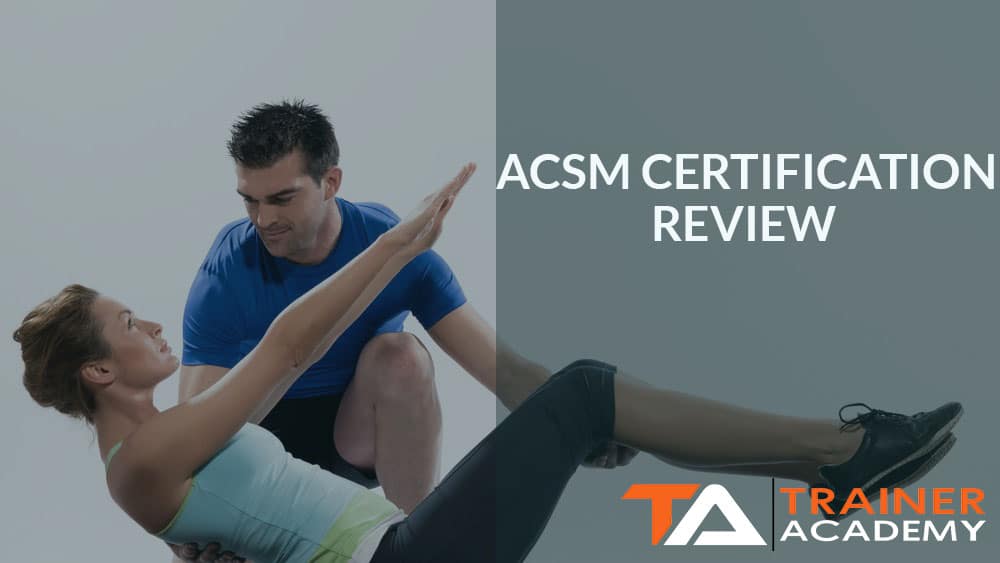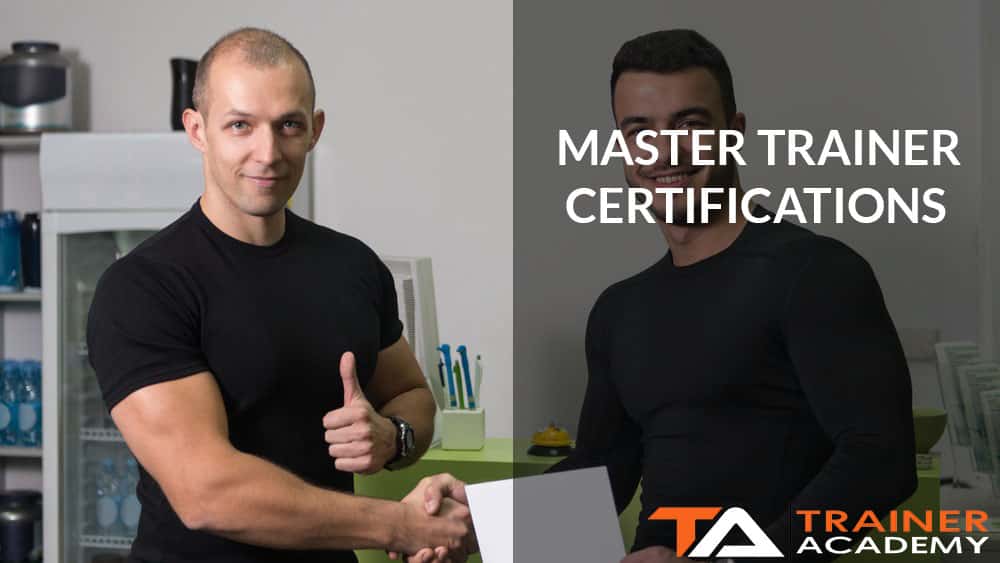Here at Trainer Academy, we love providing insight and resources on the most tried and trusted certifications out there.
On top of the classic personal training certifications, many specialist certifications go deeper into different aspects of fitness coaching.
If you feel overwhelmed by how many different certifications are out there, fear not!
In this article, we cover the top accredited fitness certification programs across multiple disciplines within the fitness industry.
Our breakdown includes:
- How to determine whether a certification is legit
- The different categories of fitness certifications
- Top accredited certifications within each category
- Best careers for each fitness certification
- The relative difficulty of various certifications
- Frequently asked questions about fitness certifications
Without further ado, let’s dive in!
We highly recommend that you take our helpful quiz to find the best fitness certification for you.
Our Top Picks
| CPT | CPT | Features | Price |
|---|---|---|---|
 | ISSA CPT |
| $828 for ISSA |
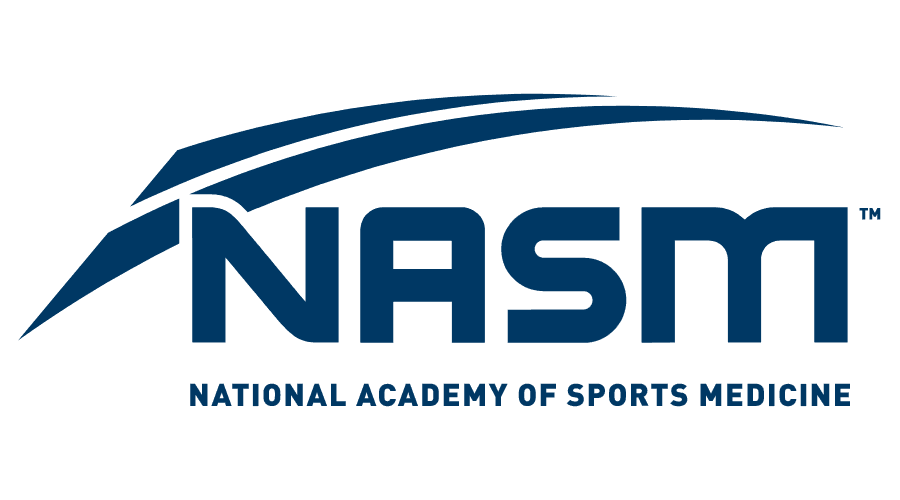 | NASM CPT |
| Check NASM Pricing |
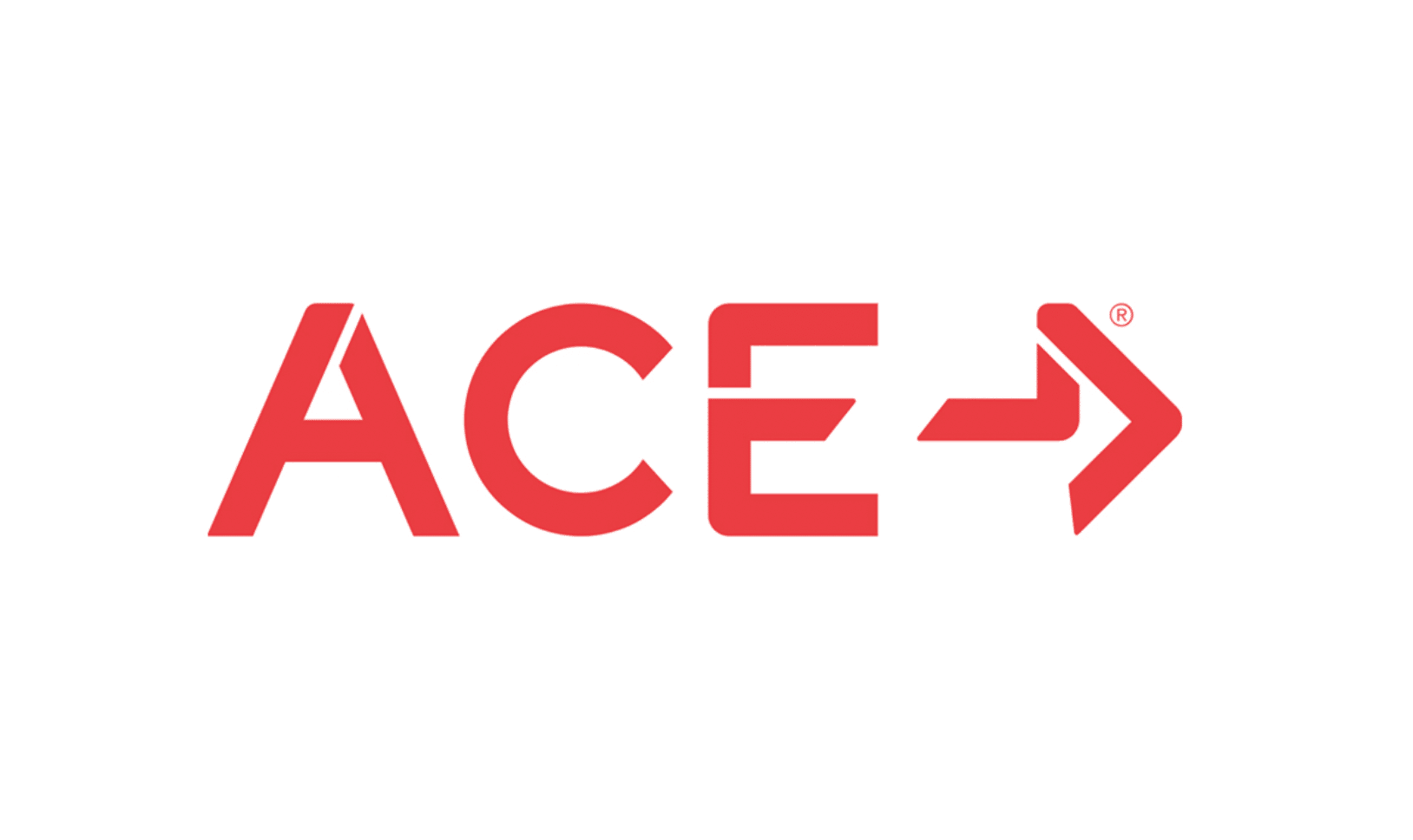 | ACE CPT |
| Check ACE Pricing |
Exclusive TA Offers |
||
Most Popular Cert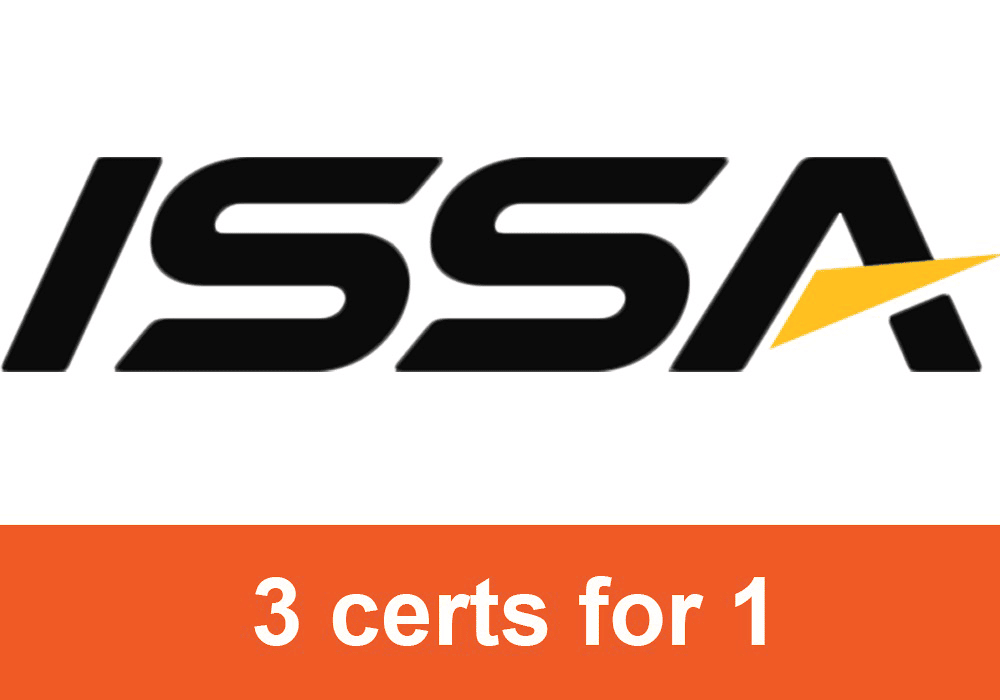 | Great Option | Best Cert for you?  |
Good Option | Good Option | Good Option |
How to Determine if Your Fitness Certification is Legit
Before we go any further with different types of fitness trainer certification, you should know how to determine if your certification is legitimate.
The bottom line is that the majority of legit fitness certifications must be from an NCCA accredited organization.
And what is accreditation?
NCCA accreditation equates to certification for a certification. It is a seal of approval, a stamp of authenticity, and an assurance of quality.
Accreditation is done by a panel of experts and leading organizations in a field relevant to an industry or educational system.
It tells you that what you’re getting when you sign up for a course has the most up-to-date knowledge resources in its curriculum and also has an appropriate educational delivery and administration system in place.
Most major accredited fitness are commissioned by the NCCA, short for the National Commission for Certifying Agencies. This applies to every NCCA-accredited personal training certification and each certification exam in the fitness industry.
However, the NCCA isn’t the only accrediting body that deals with fitness certifications. DEAC or Distance Education Accrediting Commission, is another reputable authority, albeit with limited influence.
That’s because of all the major fitness trainer certificates, DEAC only deals with one, and that is ISSA.
But aside from quality assurance, accreditation also helps you avoid the risk of falling for scams.
With the explosion of the digital marketplace and the surge in online courses, many health and fitness offerings exist that aim to capitalize on a trend that’s growing exponentially.
Within this realm, you will often come across some less than ideal offerings. Ones that promise the world in terms of legit fitness qualification, but once all is said and done and the money has left your account, what you get is less than ideal.
So always keep your wits about you and make sure you’re signing up for an NCCA or DEAC accredited certification.
And for that reason, we will only be showcasing officially accredited certifications for your convenience.
Want to skip right to individual certification information? Click one of the links below:
As a fitness professional you know that increasing overall health is a by-product of eating healthy along with working out.
If you want to coach someone, the more skills you have at your disposal, the more you can aid them in their transformation.
Adding both CPT and nutrition certifications to your repertoire will be key in your success as a new trainer, especially early on.
It will allow you to work with more clients and you can work more hours because you’re doing double duty if they want nutrition as well.
Organizations are more likely to employ you because you have a more diverse skillset.
Having the knowledge from two certifications will also help you be a better coach and fitness guide for your clients.
There are a few deals right now where you can get both CPT and nutrition at a discounted rate, although sometimes these prices will change at the drop of a hat, so make sure to check the website to make sure.
ISSA has a $828 deal for training and nutrition together where you get two certs for the price of one. Visit the website to see if it’s still running.
NASM is another great option with a slightly more expensive NASM Nutrition and Fitness bundle for $999. We urge you to check the site as soon as possible because no good deal lasts forever.
Best For Personal Training
What Is Personal Training?
Personal training, as the name entails, is the engagement of individuals by a qualified health and fitness coach through and exercise programming and instructional protocol based on a structured assessment on a one-on-one basis.
It’s you and your individual client working towards a predetermined goal.
Common PT client goals include:
- Weight loss
- Muscle building
- Functional skills development
- Corrective and rehabilitative exercises
- Fitness and performance enhancement
Personal training is the most basic form of fitness instruction and allows for a focused, outcome-driven approach applicable to the general population.
Career Prospects as a Personal Fitness Trainer
As a certified fitness trainer, the career prospects are pretty broad. You’ll have the ability to work with clients across the general population.
With that being said, there’s also the opportunity to work with more specific population groups such as different age demographics and those with medical contraindications such as hypertension and arthritis, which will require a more specialized approach.
A career in personal training can take you anywhere from working in a commercial gym to running your own private business and even leveraging your services across an online platform.
In fact, starting a an online personal trainer business is an increasingly popular route for growing your existing training career, although online personal training may be counterintuitive to old school beliefs.
According to statistics from the U.S. Bureau of Labor Statistics, the median income for fitness trainers is $40,510 per year, although personal trainer salary is different across each state.
Best Fitness Certifications in this Category
When you’re taking the steps to become a personal trainer start with a good certification. The gold standard when it comes to accredited programs for CPT are those offered by the following organizations:
- The National Academy of Sports Medicine (NASM)
- The American College of Sports Medicine (ACSM)
- The National Strength and Conditioning Association (NSCA)
- The International Sports Sciences Association (ISSA)
- The American Council on Exercise (ACE)
The above personal fitness training programs are the most popular institutions out there with massive industry recognition. Their fitness professionals certification programs are their flagship offerings and have the highest enrollment for excellent reasons.
The following organizations are newer to the scene but offer similar NCCA accredited fitness certifications as the gold standards above:
- National Council on Strength and Fitness (NCSF)
- National Exercise and Sports Trainers Association (NESTA)
- National Federation of Professional Trainers (NFPT)
Getting certified through fitness courses from any of these organizations will set you up for a successful career in the industry.
Choosing between these certs can sometimes be decided by the type of content you look for as a new trainer.
For example: the NASM CPT certification is known for its good base of corrective exercises. When choosing between NASM or ACE, consider that the ACE trainers certification has excellent exercise motivation techniques.
Along with your CPT cert it also be helpful to throw in some specialization certifications as well.
Typically, the highest paid trainers out there have found a niche out there that they can carve out for themselves.
Getting a corrective exercise or strength and conditioning credential can help you focus on honing your skills in that particular area and taking the next step in your career. Adding a specialization right away will certainly set you apart from other trainers out there with just a CPT.
Both NASM and ISSA have packages that include several certs together. ISSA is the more moderately priced at $999 for three different certifications together. NASM has a much larger Elite Trainer bundle for up to 6 different specializations.
Exclusive TA Offers |
||
Most Popular Cert | Great Option | Best Cert for you?  |
Good Option | Good Option | Good Option |
Best For Strength and Conditioning
What are Strength and Conditioning?
Strength and conditioning is training that focuses on improving functional biomechanics for the enhancement of performance, correction of functional deviations, rehabilitation from injury, and the prevention of potential injury.
Strength and conditioning certifications typically focus on athletic performance for athletes ranging from youth, high school, college sports, and professional sports.
As a strength and conditioning coach, you would administer training in a similar way to a PT, with the only difference being a deeper focus on applying evidence-based methodologies designed to improve performance.
Career Prospects
Strength and conditioning type training is great for everyone, but the specialization really opens the door to some more exciting and high-stakes opportunities.
One possibility is working with sensitive population groups in the realm of elite professional athletes.
Working with elite athletes is one of the most lucrative careers in fitness, especially when dealing with massive organizations and sporting leagues.
According to statistics from the U.S. Bureau of Labor Statistics, the median income for sports strength and conditioning coaches is $45,650 – although this will vary substantially.
Best Certifications
If you’re interested in how to become a strength and conditioning coach the best certifications would have to go to the NSCA CSCS (Certified Strength and Conditioning Specialist) and NASM PES (Performance Enhancement Specialization).
Both of these certifications are geared towards top-tier professionals whose ambitions are aimed at dealing with elite athletes.
Because of this, one of the prerequisites for both certs is a college degree in a field of study relevant to sports or fitness.
There is also the premium NSCA CSCS MVP package that will help you achieve a 99% pass rate, reduce your study time by half, and also has a mouth-watering offer of money-back guarantee attached to it.
The current price for the NASM PES cert right here and NSCA CSCS can be found in the link
Trainers in this category can expect an average income of $44,290, according to salary.com.
To help you pass the NSCA CSCS exam we have a practice CSCS test and CSCS exam prep, so go get after it!
Best For Group Fitness Instructors
What is a Group Fitness Instructor?
A group fitness instructor or group exercise instructor is a trainer who coaches multiple people in a single session.
Unlike a personal trainer, who can focus exclusively on one person and their current status, a group trainer is a bit more removed from each client.
While basic certified personal trainer certifications such as the NASM-CPT or NSCA-CPT are okay for group fitness, if you plan to be a group exercise instructor, you should consider a more specialized certification.
Examples include the ACE group fitness certification, NASM group exercise certification, fitness instructor certification, and any other aerobics certification that covers coaching methods for small or large groups.
If you want to become a fitness instructor for groups, it is very helpful to become a certified personal trainer first for the fundamental coaching skills before looking into your group fitness instructor certification.
In many cases, this is already a requirement. For example, getting your NASM certification or ACE personal trainer certification is a prerequisite for taking additional certification courses through those respective organizations.
Although this may seem like a pain, most of the prerequisites for group fitness certifications are still some of the best fitness certifications to get, and becoming personal trainer certified is a huge resume booster regardless of whether you want to train 1-on-1 clients.
Other specialized group fitness certifications include going through a trainer certification program for an indoor cycling certification or other niche group exercise modalities. As always, prioritize getting nationally accredited personal training certifications before testing out newer, niche programs.
Career Prospects for Group Fitness
Within the realm of group fitness, there exist two subcategories: large group training and small group training.
Large group training, in this sense, is anything above ten people per session.
This can be anything from a studio Zumba session all the way to a massive Bootcamp gathering.
Large group sessions like this are typically run on a set program of choreographed movements or circuit stations that participants cycle through during a session.
We have small group training, which is any session with more than one and up to 10 participants.
This setting is more of a hybrid between one-on-one personal training and group training, especially with lower attendance.
Because of this, you’re able to administer somewhat of a progressive program. The use of daily undulating periodization or DUP is a common protocol for small group training due to the progress that can be achieved through group adherence.
Group training has the potential to net a decent income, especially in the small group training category, if you work as a private trainer. That’s because you charge less per client, but with volume, you can make more per session than with a one-on-one.
According to salary.com, the average income for a group trainer is $41,901/year
Best Group Fitness Certifications
The best certifications in this category would be NASM Group Personal Training Specialization and AFAA Group Fitness Instructor.
The reasoning behind this is simply from a cost and value perspective.
Most certifications in group fitness offer the same general, relevant education within the field. Where NASM wins as a group fitness cert is in the fact that once certified, you don’t need to recertify. You are a NASM-approved group instructor for life! The NASM badge of honor is a nice bonus too.
Passing your exams with NASM is very easy if you make use of our free NASM study guide alongside the free NASM practice test.
Reducing your study time by 50% and achieving a 99% pass rate in the final exam is very possible if you decide to utilize the NASM MVP package.
Above all, it comes with an unmatchable money-back guarantee offer.
To have the complete info, click on this link for the updated NASM review.
Discover the latest deals and discounts available for the NASM cert right here.
As for AFAA, you have one of the most robust group instructor certs in terms of study resources at a reasonable price. On top of that, since it’s a subsidiary of NASM, you’re guaranteed the same level of quality and some of the recognition.
Although these certifications do not necessarily offer a job guarantee, you can be sure that as a certified personal trainer and a certified group fitness instructor, you should have many options for jobs ranging from your local health club to large commercial gyms and boutiques.
Click here to access quality study materials and kickstart the process.
Best For Health Coaching
What is a Health Coach?
A health coach is a sort of lifestyle guidance counselor who uses a scientific approach to assess and advise clients on the correct approach to chronic health issues and general guidance on health fitness.
This usually involves referring clients to qualified specialists such as doctors and dietitians and then acting as an accountability and adherence supervisor.
As such, a health coach career combines aspects of fitness training and healthcare sectors to deliver specific guidance to special populations. Note that you can also be a health coach to the general population as well.
Career prospects
As a certified health coach, you will be able to work with special populations. This includes people with serious chronic or terminal illnesses, senior fitness, the disabled, and other special needs groups.
The majority of the work you will be doing will be in the field of chronic illness. Unlike a personal trainer, the focus isn’t necessarily on fitness, although that does play a role.
The goal is more towards a realignment of healthy lifestyle habits aimed at preventing medical issues from worsening or even reversing them completely.
Best Certifications
There are many health coach certifications on the market. Often they are called names such as wellness coach certification, but many of these are not actually delivered through accredited organizations.
Currently, the ACE Certified Health Coach certification study program is the only one on offer by an NCCA-accredited agency.
Because the activity and scope of practice of a health coach come close to standard medical practice, candidates are required to fulfill some relatively top tire prerequisites.
Not only will you require a college degree, but you will also need to have completed a National Board for Health and Wellness Coaches recognized program and logged at least two years of experience in the field.
The free ACE study guide is a great way to start the process of acquiring a health coach certification without stress.
You can use the free ACE practice exam tool to test your assimilation and retention level from time to time before the exam date.
However, If you are constrained by time due to a busy work schedule, I’ll recommend our MVP study package; It has different study techniques incorporated in it and will give you a 99% pass rate, inclusive of a non-negotiable money-back-guarantee offer.
Best For Nutrition Coaching
What is a Certified Nutritionist?
Nutrition is a pivotal aspect of the health and fitness game plan, yet it’s often overlooked and underplayed.
This could be because training and exercise are the more engaging aspects of health and fitness, while nutrition is more of a long, drawn-out game.
Whatever the case, nutrition is as important, if not more important, than the exercise methodologies that come in with health and fitness.
Having a separate nutrition qualification is our top recommendation for a secondary certification to go with any of the exercise-centric credentials mentioned in this article.
As a nutritionist, you will be tasked with assessment, program design, and accountability around a client’s nutritional goals. You’re pretty much doing what a PT does, just with food as opposed to exercise.
It’s important to point out that as a nutritionist, your scope of practice doesn’t allow you to diagnose or treat a client’s condition with nutrition. That job is reserved for registered dietitians.
As a nutritionist, you’re simply there to offer guidance and accountability around very basic nutritional protocols.
Planning and instruction around the foundational principles of metabolic biochemistry and the thermodynamics of caloric expenditure are what you’re dealing with.
Any food-related medical concerns are out of your jurisdiction.
The best certifications for nutrition will emphasize this and teach you how to implement it properly, threading the note between sensible and safe advice.
Career Prospects
When you become a nutrition coach through a certification, you’ll have access to all the standard health and fitness career options, but now with a bit more focus on the nutritional component.
With the rise of obesity and other food intake-related metabolic diseases, there will be an increasing need for coaches will the skillset to help clients with nutrition.
And when it comes to earnings, average nutrition coach salary is quite a substantial average income, sitting at $63,200 according to salary.com.
Of course, it’s safe to assume that as a nutritionist, most in this bracket probably have at least one other credential tacked on which raises their overall value as a trainer.
Best Certifications
In our experience observations, we’ve found that the best nutritionist cert has to be the ISSA Certified Nutritionist.
This is an in-depth, hands-on approach to nutritional coaching and programming.
Another great nutrition course is Precision Nutrition, level 1.
This one is a bit of an exception because it technically isn’t a certification. It’s a legitimate educational and business resource, but it is not accredited by any recognized commission.
What they lack in an official seal of approval, they make up for with an amazing offering of educational and business support tools, that’s because PN is all about making that money.
It’s an entrepreneurial platform, first and foremost, which is important since this is your job and business.
You will be getting a good deal by opting for either the ISSA Nutritionist cert or Precision Nutrition cert especially if you purchase it through the ISSA website.
While getting the ISSA Nutritionist or PN cert, you’ll also be getting an ISSA personal trainer certification at the same cost, thereby leveraging on both when you start to practice.
Enjoy the buy-one-get-one-free offer by clicking the link here. Won’t last long; that’s for sure!
To sweeten the deal more, you can likewise access the elite trainer package (3-in-1 combo) where you get to have a personal training cert, a nutritionist cert, and one other cert of your choosing at a discounted price.
A click on the link below will give you direct access to the elite trainer package.
We have a comparison of the ISSA certification vs NASM if you’re looking at both certs.
Exclusive TA Offers |
||
Most Popular Cert | Great Option | Best Cert for you?  |
Good Option | Good Option | Good Option |
Best For Corrective Exercise
What is Corrective Exercise?
Corrective exercise training is a method of coaching that involves identifying imbalances, deviations, and dysfunctions in the biomechanics of the human body.
Corrective exercise primarily focuses on lengthening tight, overactive muscles and strengthening weakened, underactive muscles to improve posture and movement patterns.
The musculoskeletal system of each individual has an optimal state of function. Identifying that state of function, then figuring out what might not be working within that framework is the first step in corrective exercise.
The next step is deciding which exercises will help fix the issues, then working them into a progressive plan. Lastly, as a corrective exercise coach, you will be tasked with instruction and monitoring.
You must develop a keen eye for movement and form deviations when correcting the client’s posture.
Corrective exercise is often incorporated into the programs of general fitness clients, particularly in the early stages of training when clients still need to improve their movement patterns.
Career Prospects
As a certified corrective exercise specialist, you will be able to deal with pretty much all population groups. Most people have some postural or movement issue worth addressing. Given that more and more people are sedentary, dysfunction, imbalance, and deviation are more prevalent.
You may also have opportunities in the world of sports by helping athletes improve technique or recover from injury.
Some corrective exercise knowledge is essentially a must-have for safely training general fitness clients, but a specific corrective exercise certification will make you stand out, even more, when it comes to helping clients improve their movement patterns.
Best Certifications
In the realm of corrective exercise, NASM is a great certifying agency in general. Their entire educational focus is based on corrective principles, which is indicated through their proprietary OPT model.
The OPT, short for Optimum Performance Training, is a comprehensive fitness training methodology developed by NASM.
In a more specific sense, NASM has a dedicated corrective exercise specialization, the NASM CES (corrective exercise specialist), which takes the OPT model and amplifies it.
ACE also happens to have a great corrective exercise specialization. This certification is actually administered by the BioMechanics Method, which is a specialist certification in corrective exercise. You can either do it through ACE or enroll directly with the TBMM CES course.
Don’t miss out on some great free resources for your ACE exam: ACE study questions and an ACE practice test.
To get more info on the above certifications, click on the links below:
Best For Yoga Instructing
What is Yoga?
Finally, we take a look at yoga certs.
Since yoga is more of a holistic, mind/body training system, which is more of a skilled discipline than an exercise methodology, it’s hard to argue why you should do it through an accredited certifying agency.
But at the same time, there’s no reason not to when you can attach a big-name certification to your yoga practice.
But before we go too far in, let’s try and understand what yoga is exactly.
Yoga is a staple in the modern healthy lifestyle as well as a relic of eastern mystic teaching. The mysterious discipline has its roots in the Indian subcontinent.
Its ancient origins have transcended the ages, making it one of the trendiest activities today.
The huge market adoption of yoga in mainstream fitness is an opportunity not to be missed.
Most large gym franchises have a yoga offering, and many specialist yoga studios lurk around every metropolitan corner.
Yoga is a training method that improves range of motion and strength, as well as providing a mental boost.
Career Prospects
Yoga is widely adopted by the female fitness community, but increasingly by males as well.
The demographic for yoga practitioners are typically in the higher income bracket, so the prospects regarding earning potential are substantial.
Your career options in yoga are quite broad, owing to the way it is instructed.
Unlike many exercise methodologies, yoga is a discipline that follows an established pattern of practice. Choreographed yoga flows are easy to imitate for most practitioners, which opens you up to many online coaching options.
It also means you’re able to coach massive groups, which is why yoga credentials go well with group training credentials.
A yoga instructor would earn an average of $38,048/year, according to salary.com statistics.
Best Certifications
Yoga certification is administered by organizations such as Yoga Alliance, a global leader in yoga.
To gain your yoga credentials, any provider offering an RYT (registered yoga teacher), YTT (yoga teacher training), or an equivalent course is a legit way to certify as an instructor.
Unlike most of the certifications in this article, yoga is not beholden to accredited certification standards.
Several great yoga schools and yoga retreats dotted across the US offer excellent teacher training programs.
The locations with the best yoga teaching options, and thus, the best marketplace for a yoga instructor are:
- Hawaii
- California
- Maui
- Palm Beach
- Florida
- Washington
- New York
If you’d like to stick to a traditional certifying agency for your yoga teacher training, AFAA and ISSA offer great yoga courses. Check your local listings to find a good yoga training center. If you are interested in other similar credentials here’s a list of the best pilates certifications as well.
You can get started today by clicking this link to access these study materials.
Best Fitness Certification Pairings
It’s one thing to get a certification, but combining the right specializations can really help you take things to the next level in terms of your value as a trainer and your career prospects.
Finding the right blend of credentials also depends on what you see yourself becoming as a trainer.
Let’s take a look at some of the best possible cert combos.
| Combination | Career Option | |
| Personal Trainer + Group Fitness Instructor | Gym trainer, general fitness trainer | The most basic career path with a broad potential for growth |
| Personal trainer + S&C | Athlete coach, physiotherapist, physical educator | As a PT with S&C credentials, you are primed to deal with sensitive situations as well as elevate the performance to an optimal level. You will also have a deeper academic grasp of fitness principles, allowing you to educate others. |
| Group Fitness Instructor + S&C | Sports teams, tactical units (police, SWAT, military) | As a trainer with expertise in handling groups and administering strength and conditioning protocols, you are in a great position to enhance sports teams on the field. There is also a market in tactical training for combat operatives |
| Health Coach + Yoga Instructor | Therapeutic wellness coach, care facility instructor, wellness retreat manager | As a health coach with yoga credentials, you are equipped to provide uplifting therapy to those in need. It also presents a lucrative opportunity to work in the tourism industry as a retreat yoga and wellness specialist. Ever been to Bali? |
| Nutrition + Anything | A general recommendation | Nutrition is as important as the exercise component of healthy living or performance enhancement. No trainer should be without a sound grasp of nutritional concepts. You may as well go all the way and become a qualified nutrition coach. |
FAQ
What is the most respected fitness certification?
For general personal training, the NASM, NSCA, ACSM, and ACE are generally the most respected. NASM, in particular, is probably the most widely recognized CPT; however, any of the certifications discussed in this article should be able to land you a job at a gym.
What is the hardest personal trainer certification?
Of all the certifications we have covered, the CSCS is the hardest. This strength conditioning and performance-focused certification have the most rigorous prerequisites of a bachelor’s degree or higher, the toughest CPT exam questions, and the standard CPR AED certification.
Do I need a degree to be a personal trainer?
You do not automatically need a college degree to be a personal trainer. For most general fitness certifications, the requirement is a high school diploma and CPR certification. Exceptions include the CSCS and some nutrition certifications.
Can I take my fitness certification online?
Most self-study or guided study fitness certifications are taken entirely online. The curriculum usually includes exam content, a digital textbook, exam prep resources, and a personal trainer manual. Some programs include webinars, retest fees, and lifetime recertification.
Do fitness certifications require continuing education credits?
Virtually every accredited fitness certification requires you to take continuing education credits or CEUs. Example CEUs from major organizations include fitness nutrition certifications, clinical exercise physiologist, and an array of other specializations such as group fitness or corrective exercise.
Conclusion
There are many more specialist credentials you can go for in the world of fitness; some of them are broad and can be applied to many common scenarios, while others are very niche and not far-reaching.
At the end of the day, it really depends on where you want to take your career and where your skills lie. We hope this fitness certifications list helps you arrive at that conclusion a little quicker.
If you need a deeper analysis of each specialty, click on the links below to access our detailed reviews.
References
- Melton BF, Romanchik-Cerpovicz JE, Ryan GA, Gallagher CG. The Influence of Education on the Nutritional Knowledge of Certified Fitness Professionals. International Journal of Exercise Science. 2021;14(4):239-249. https://pubmed.ncbi.nlm.nih.gov/34055166/
- Sawney P. Current issues in fitness for work certification. The British journal of general practice : the journal of the Royal College of General Practitioners. 2002;52(476):217-222. Accessed January 11, 2024. https://www.ncbi.nlm.nih.gov/pmc/articles/PMC1314243/
- Malek MH, Nalbone DP, Berger DE, Coburn JW. Importance of health science education for personal fitness trainers. Journal of Strength and Conditioning Research. 2002;16(1):19-24. https://pubmed.ncbi.nlm.nih.gov/11834102/





